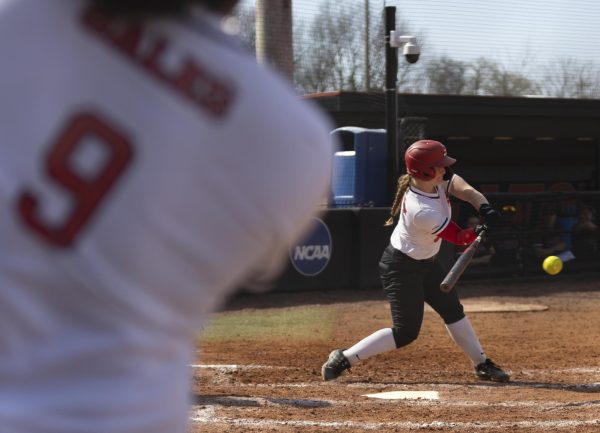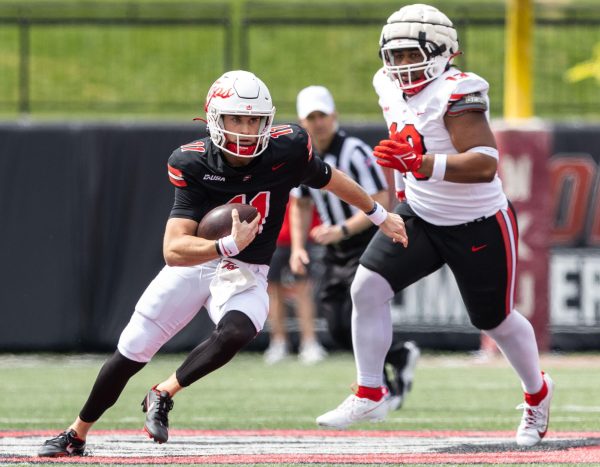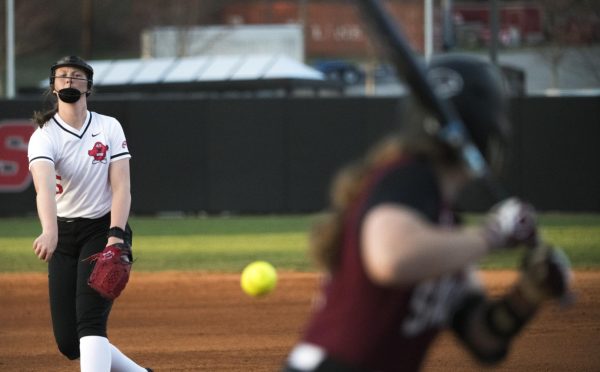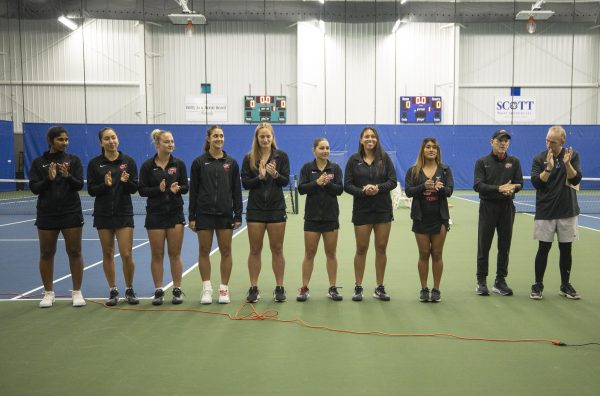Documents shed light on Fant, Price’s summer employment issues
Freshman guard T.J. Price, pictured, and freshman forward George Fant were cleared by the NCAA last Friday after sitting out the team’s first four games due to NCAA rules violations. Price and Fant were innocent victims to what appears to be a larger fraudulent scam at LifeSkills, Inc. in Bowling Green.
November 22, 2011
Freshman forward George Fant and freshman guard T.J. Price were both victims in what appears to be a larger, ongoing fraudulent scam at LifeSkills, Inc. — a Bowling Green-based nonprofit at which the two worked this summer — which led to their early-season suspension, according to documents obtained by the Herald through the Kentucky Open Records Act.
The two players were ruled ineligible before WKU’s season-opener against St. Joseph’s after the NCAA determined that Fant and Price had accepted money for work they didn’t do — a violation of NCAA bylaw 12.4.1, stating that student athletes can only be paid for work they actually perform and must be paid the going rate of similar businesses in the local area.
Both were reinstated before WKU’s game on Sunday against VCU.
WKU, Fant and Price claim that Tim Schwartz, a “CDO Broker” for LifeSkills, misled Fant and Price into believing that LifeSkills operated in a way that allowed for payment before work was completed when the two were hired in June.
“Unbeknownst to George and Timothy (T.J.), the Supervisor (Schwartz) was involved in a significant amount of fraudulent activity related to this government program (LifeSkills),” wrote Will Lawler, WKU’s Compliance Coordinator, in a letter of appeal to the NCAA. “(Schwartz’s) mode of operation was to fraudulently record timesheets and service notes for payment to the service providers (Fant and Price).
“Once the service providers received payment, he blackmailed the service providers by making them believe they had committed fraud. He would tell them that if they did not give him a percentage of the money, then he would turn them into the authorities.”
A student’s NCAA records are confidential under the Family Educational Rights and Privacy Act (FERPA) because they qualify as “education records.” But in an effort to prove their innocence in the matter, both Fant and Price agreed to waive the rights given to them under FERPA and provided all documents relating to their employment at LifeSkills and all correspondence to the NCAA regarding their reinstatement to the Herald.
Along with WKU’s appellate letter to the NCAA, other documents provided include:
– A reinstatement request, sent Nov. 11 prior to WKU’s first game, which also included the secondary violation report.
– The NCAA’s response to the reinstatement request, including follow-up questions.
– Reinstatement letters written to the NCAA and signed by Fant and Price.
– Photocopies of the checks written by Fant and Price with the total amounts due to LifeSkills, dated Nov. 11, 2011.
According to documents, Schwartz allegedly hires people to work for him at LifeSkills and pays them before they work. From there, he’d ask for a portion of the money back. If someone refused to give them the money, he’d threaten them by telling them that what they were doing — accepting government money before completing the work — was fraud and that he would report them to authorities.
Schwartz’s motivation for doing this is still somewhat unclear, Lawler said. It’s also unclear exactly where Schwartz was getting the money and whether he’s an employee of LifeSkills or if he’s an independent contractor.
In the case of Fant of Price, Schwartz forged timesheets and service notes, which said what work they provided, and signed them so Fant and Price could be paid. Fant and Price signed up to provide “certain non-medical services to families and individuals with disabilities.”
Lawler said it’s believed that Fant and Price weren’t the only ones who fell victim to Schwartz’s scam, saying they believe adults at LifeSkills have also been caught in it somehow, whether knowingly or not.
In other words, Fant and Price weren’t being paid in advance solely because Schwartz wanted to cater to Division I athletes, which would constitute as an NCAA violation.
Schwartz is under investigation by LifeSkills, and the case is being turned over to local and federal authorities. He’ll be charged for federal and/or state crimes in the near future, according to the documents.
Lawler said the NCAA ultimately reinstated Fant and Price because they believed they acted as “reasonably prudent 18-year-olds” who were “naïve to real-world criminals like (Schwartz)” given that this was their first “real” job.
Also, Schwartz met with Fant, Price and the WKU Compliance Office prior to both players starting work and signed off on papers saying that he understood and would abide by NCAA employment rules. Fant and Price never signed the papers and trusted Schwartz when he said what he was doing was allowed under NCAA rules.
However, those types of conversations are typically done on the phone, the documents said. The fact that Schwartz took the time to meet in person with all three parties rather do it on the phone led Fant, Price and WKU to believe that Schwartz was an honest and trustworthy person, according to the documents.
“(Schwartz) was very charismatic and gave the impression that he completely understood the NCAA rules and had the best interest of the student-athletes at heart,” Lawler wrote. “This certainly played a role in later events.”
After Fant and Price received their first paycheck, the documents state that Fant — on behalf of himself and Price — continuously called Schwartz to question why he was receiving money when the two hadn’t worked and asked when they would get their work assignment.
Schwartz told them it would be “right around the corner” when they would start working, but Fant and Price never did get an assignment, according to the documents.
Instead, they received three paychecks — on Aug. 30, Sept. 28 and Oct. 10. Fant received a total payment of $1,282.30 while Price received a total payment of $1,208.75. All money was paid back in full on Nov. 11.
Lawler said Fant and Price could have done more, specifically telling the Compliance Office that they were receiving payments in advance. That was a reason for their suspension.
“They acted as reasonable 18-year-olds when they believed him,” Lawler said Monday. “They were swept up in a bigger manipulation. If they were (older) with work experience and had been out in the real world a little bit, then something may have triggered, ‘Hey, this doesn’t smell right.’
“The level of their culpability was minimized significantly because they were 18 years old and had never worked before and believed that they were doing the right thing.”
According to the documents, WKU has sought a statement from LifeSkills, but the company has been unable to provide one since Schwartz is under criminal investigation.
The Herald attempted to reach LifeSkills on Nov. 15. A call was returned on Nov. 16 by David Broderick, LifeSkills’ attorney, who said he would call back when he got more details. Broderick has yet to contact the Herald.
Additionally, attempts to reach Schwartz via phone and email were unsuccessful. Schwartz has yet to reply to a voicemail left on his work phone.























